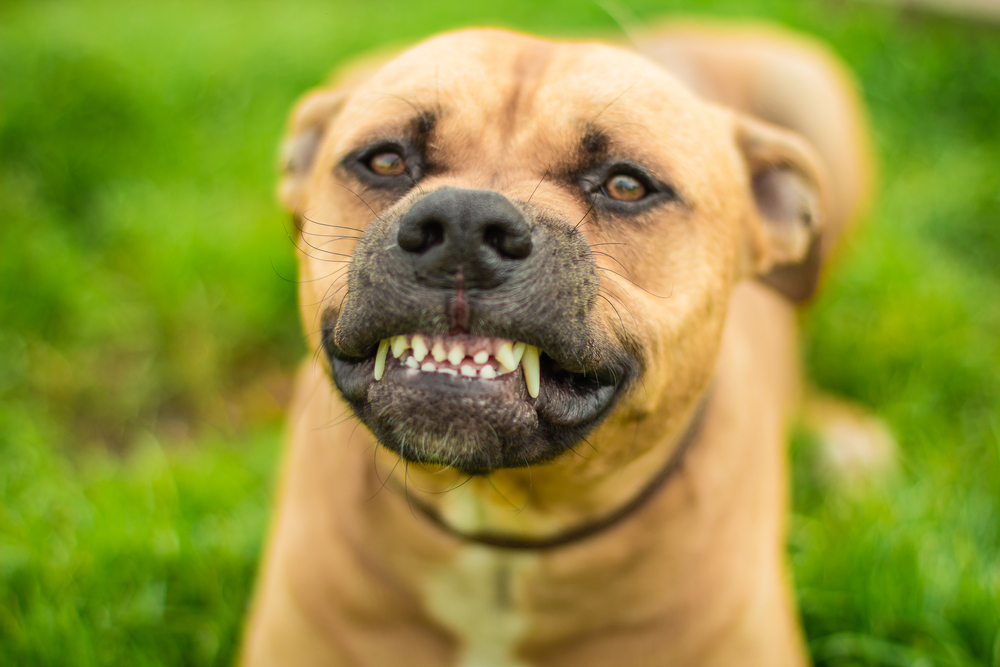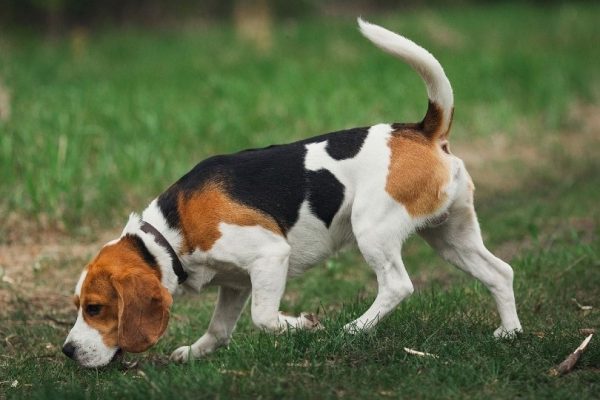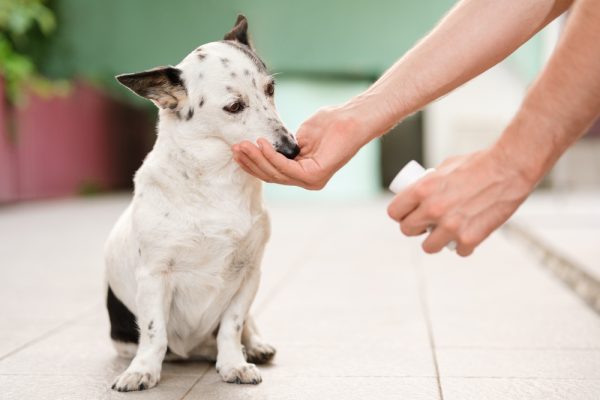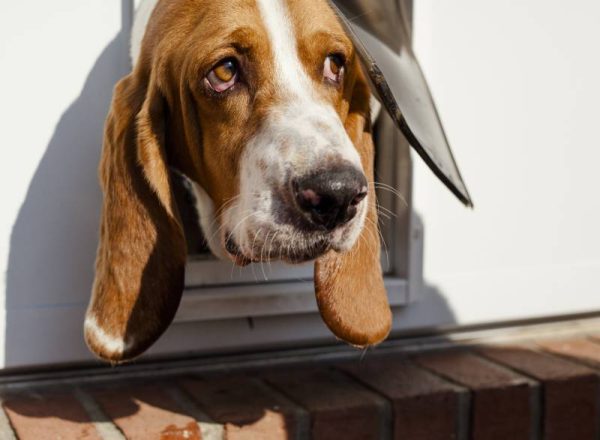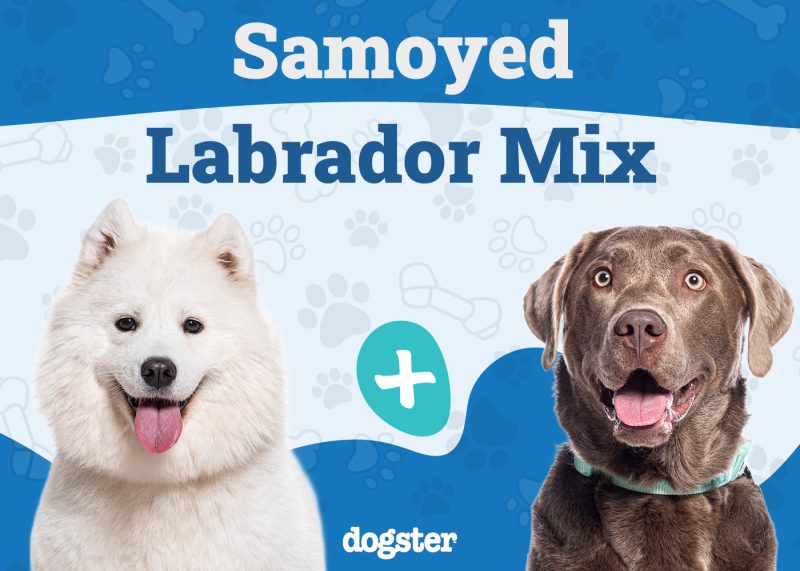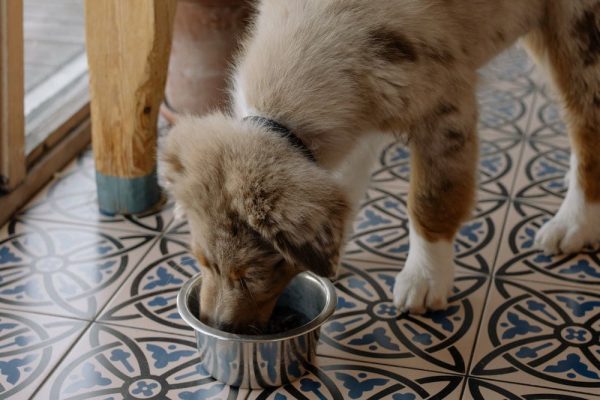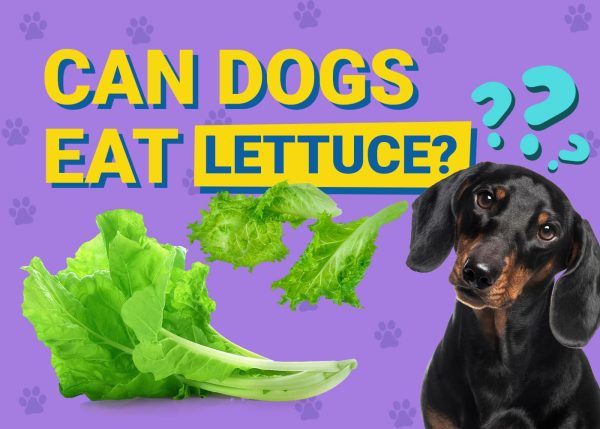In this article
Many people don’t pay much attention to their dog’s teeth unless they’re brushing them regularly (and let’s face it, brushing a canine’s teeth can be challenging, so many of us don’t do it as often as we should). But you should pay attention to your dog’s dental health, as dental disease or misaligned teeth can cause problems for your pup. If you do look at your dog’s teeth on a regular basis, then you might have found that your pet’s teeth are crooked.
Why are your dog’s teeth crooked? There are a handful of causes for dogs with crooked teeth, but it essentially boils down to your pup having a malocclusion. Here’s a closer look at why your dog’s teeth may be crooked and how the problem might be remedied.

The 7 Potential Reasons Why Your Dog’s Teeth Are Crooked
There are several reasons a dog’s teeth could be crooked or misaligned. This condition is known as dental malocclusion, which simply means the teeth don’t fit together properly when the mouth is closed. Malocclusions fall into two broad categories: skeletal and dental. In skeletal malocclusion, the jaw’s length is abnormal, while in dental malocclusion, one or more teeth are not properly aligned. We’ve outlined seven possible reasons why a dog’s teeth may be misaligned, helping to differentiate between common causes of misalignment.
1. Hereditary Malocclusions
Breed and genetics play a major role in tooth misalignment. Some breeds, especially those with flat faces (brachycephalic) are more prone to malocclusions. The Shih Tzu, Pekingese, Pug, Boxer, Bull Mastiff, or Boston Terrier are among these breeds.
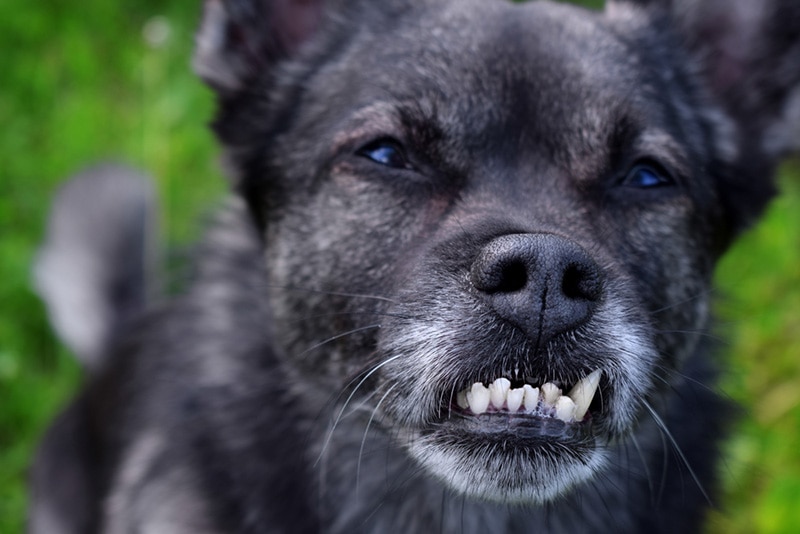
2. Persistent Deciduous Teeth
Puppies’ baby teeth (or deciduous teeth) should fall out as the adult teeth begin to emerge. But sometimes these deciduous teeth do not shed when they should, causing the permanent teeth to grow crooked, since the baby teeth are blocking the path for the adult teeth. This leads to overpopulation or misalignment, as well as gaps that trap food and debris, making dental disease more probable.
3. Extra Teeth (Hyperdontia)
Some dogs develop extra teeth, a condition called hyperdontia. It can crowd the mouth and push teeth out of alignment, resulting in crooked teeth. Extra teeth can be uncomfortable and create potential oral health issues if not dealt with.
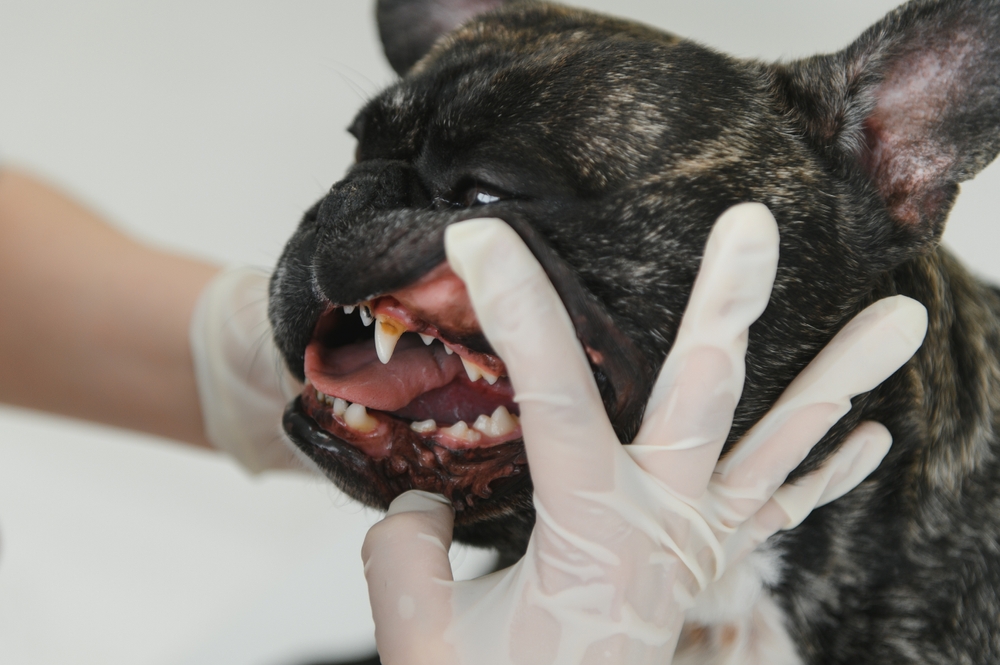
4. Hypodontia or Oligodontia (Missing Teeth)
Hypodontia refers to missing teeth and oligodontia is when there are several teeth missing. In both conditions, spacing in the mouth is affected which results in uneven positioning of the remaining teeth.
5. Lingually Displaced Canines
One of the more common problems in dogs is when one or both lower canine teeth are angled inward toward the tongue. This condition may result in the teeth hitting the roof of the mouth repeatedly and in severe cases may cause injury and even sinus infections.
6. Lanced Teeth
Lanced teeth normally affect a dog’s upper teeth, which point forward instead of downward. This hinders a dog’s bite and can sometimes cause dogs to bite their lip when closing their mouth. This condition may make it difficult for dogs to chew properly and can cause pain.
7. Crossbite
A crossbite is when the upper and lower teeth are misaligned, thus causing some teeth to be in the wrong position. A caudal crossbite occurs when the lower cheek teeth are closer to the cheek than the upper ones. On the other hand, a rostral crossbite refers to the abnormal position of the lower incisors when they sit in front of the upper ones, which affects a dog’s ability to properly close its mouth.
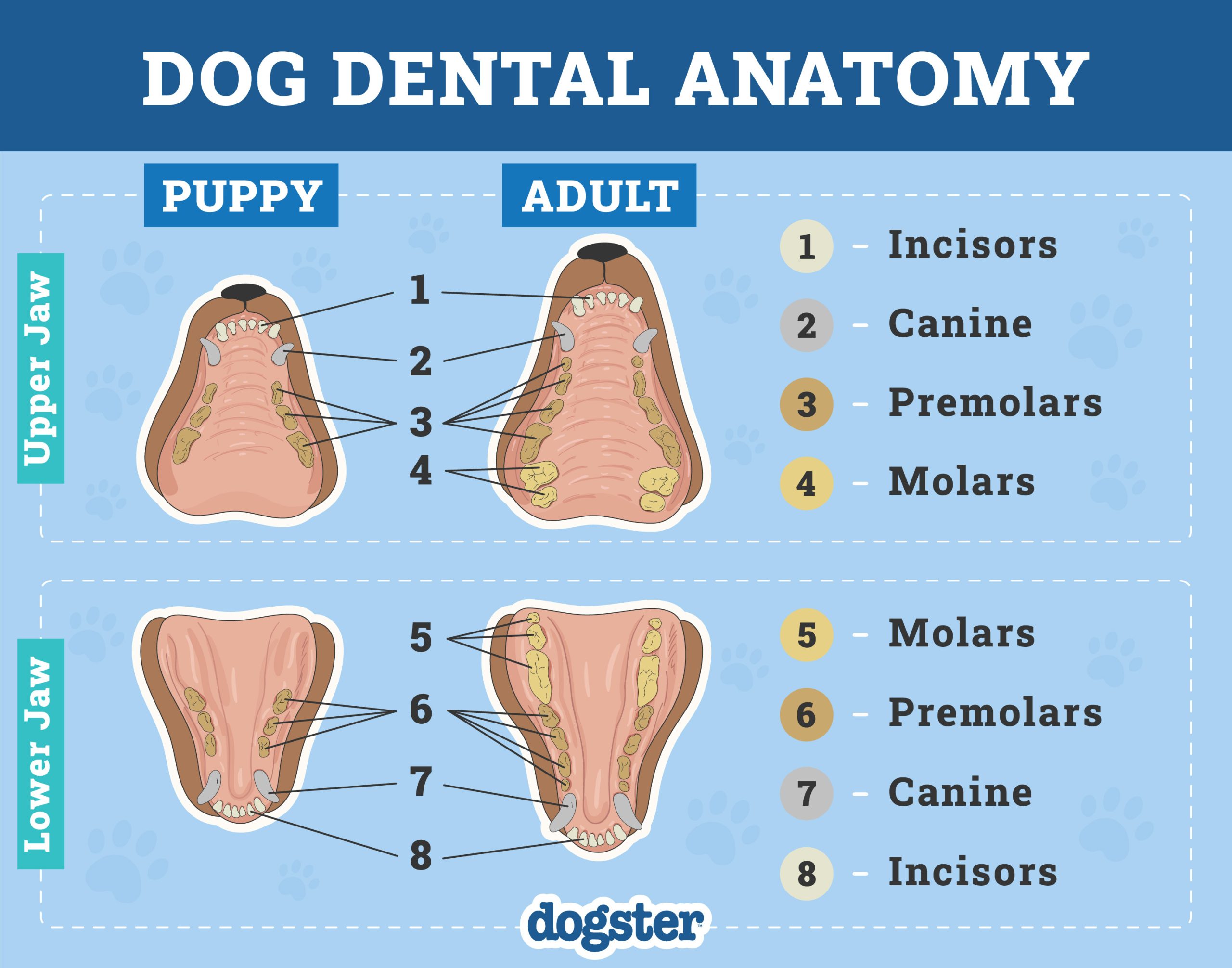
Can You Fix a Dog’s Crooked Teeth?
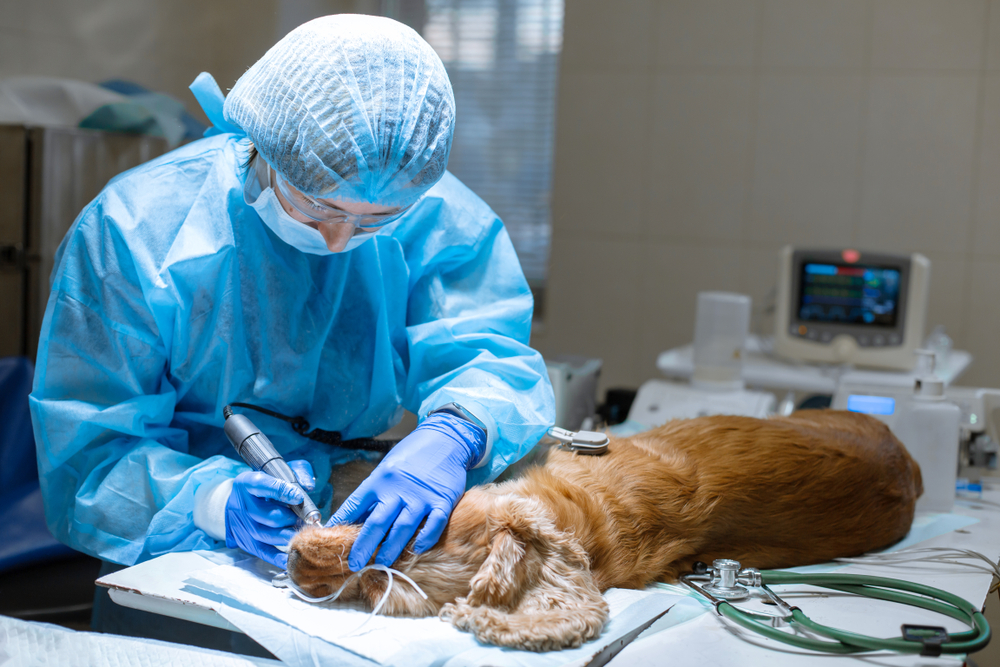
You can, in many cases. Believe it or not, there are braces for canines! Braces might not be a solution for all dogs, but they can help with issues such as too many baby teeth that didn’t fall out and lingually displaced canines, among other problems. Braces for dogs are pretty pricey, though, so you want to talk with your vet about whether your dog really needs them before you make any decisions about getting them.
There are other solutions for crooked teeth, too, depending on what’s causing them. The fix may be as simple as extracting teeth or even just filing teeth down. In the case of lingually displaced canines, if the problem is very minor, ball therapy may be an option.
Your vet will know best whether your dog needs treatment for crooked teeth or whether the issue is purely cosmetic and won’t cause further problems, so speak to them if you have concerns.
If you need to speak with a vet but can't get to one, head over to PangoVet. It's our online service where you can talk to a vet online and get the advice you need for your dog — all at an affordable price!

Final Thoughts
Crooked teeth are not uncommon in canines, and there are many reasons crooked teeth can occur. Essentially, though, crooked teeth in dogs are due to malocclusions that are typically hereditary. In some cases, crooked teeth could cause further dental health issues, but this isn’t always the case. Speak with your vet if you are concerned about your pup’s crooked teeth, and let them guide you on whether your dog needs treatment.
Featured Image Credit: Markik, Shutterstock
